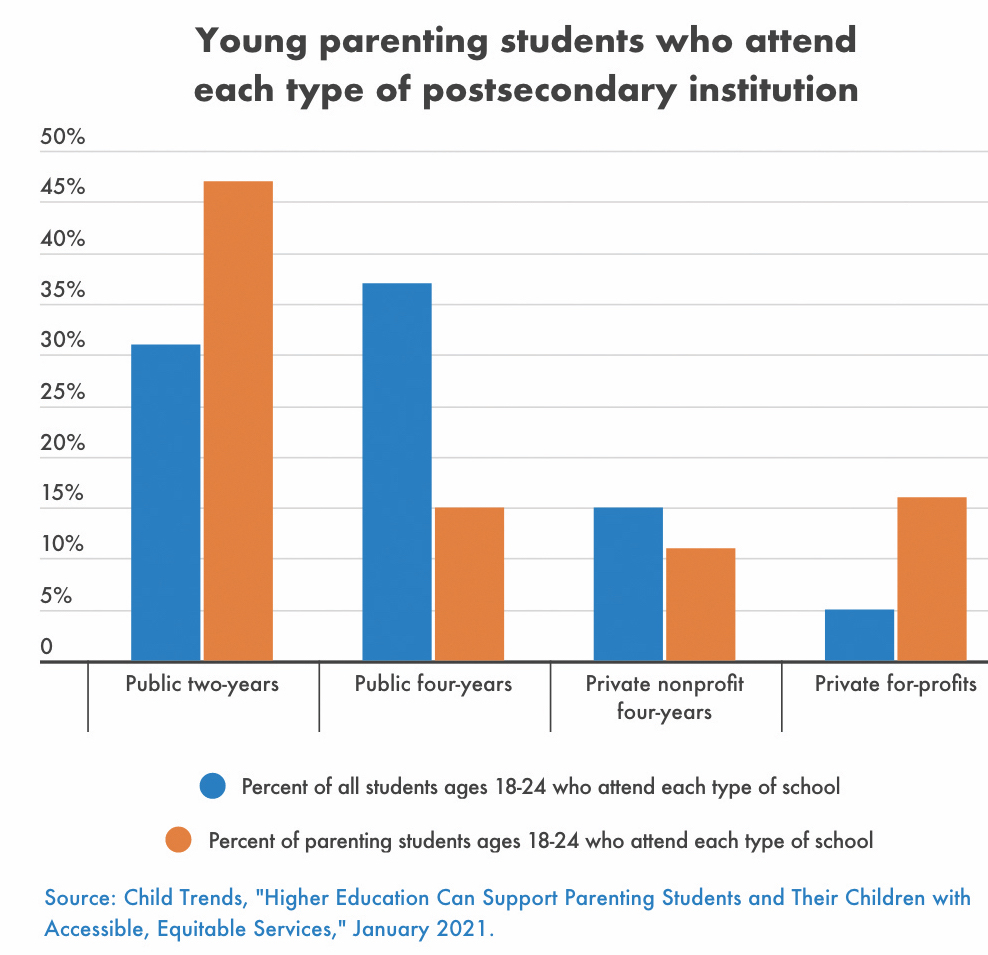
As many college students matriculate academically in the pursuit of their long-term career goals, they spend countless hours engaging in the rigors of collegiate life.
Whether preparing for exams, engaging in research or simultaneously maintaining employment, a common theme among them is the ability to manage their time and find a balance between these endeavors. However, there is another student demographic that shoulders an added responsibility – student parenting.
Destynee Popsel, a Kirkwood liberal arts major from Cedar Rapids knows this all too well.
Besides being a part-time student balancing assignments on any given week, Popsel also works full-time and manages a family. With days that usually begin at 5:30 a.m. and end late at night, the third-year student, who works as a nursing assistant, noted that the added challenges of finding a balance between her academic and personal life can often make the difference between getting enough sleep and trying to submit assignments.
“If I wake up early on the weekends, I usually do homework,” she said, “but it’s so hard to do homework and divide time with my daughter…I can’t concentrate.”
According to data highlighted by the American Association of Community Colleges, 47% of student parents ages 18-24 enrolled in post-secondary education programs attend community colleges. This percentage is three times the number of those same students who attend 4-year colleges.
The research also notes that although student parents tend to have higher grade-point averages than their non-parenting peers, they usually fail to complete their degrees. Less than a third of mothers obtain a degree or complete a certificate in six years.
“It’s realistic that there are a lot of women that need support for college,” Popsel said. “They may not have the family support that other non-parent students may have.”
Molly Anderson, a Pathway Navigator at Kirkwood who manages Project Start to help students with additional financial resources beyond financial aid encounters students such as Popsel. Recounting her experience with student parents she says that “student parents have different financial demands to meet than the typical college student.” Childcare is just one of those, she said. Federal student aid and scholarships offer some financial assistance, but there are still limitations for students that are trying to pay tuition, books, travel expenses and childcare all at the same time, Anderson said.
“All of this added stress results in student parents having less time to dedicate to studying and their grades are sometimes seriously affected by this reality.”
According to a report this fall from Generation Hope, a non-profit organization located in Washington, D.C., that supports student parents, colleges need to collect more data at the institutional level in order to better understand and meet the unique needs of student parents.
Many institutions lack sufficient data on educational outcomes like degree completion rates of student parents or caregivers. Creating campus-wide policies for student parents would help lead to more positive outcomes.
Categories: Campus News, Local News, News










